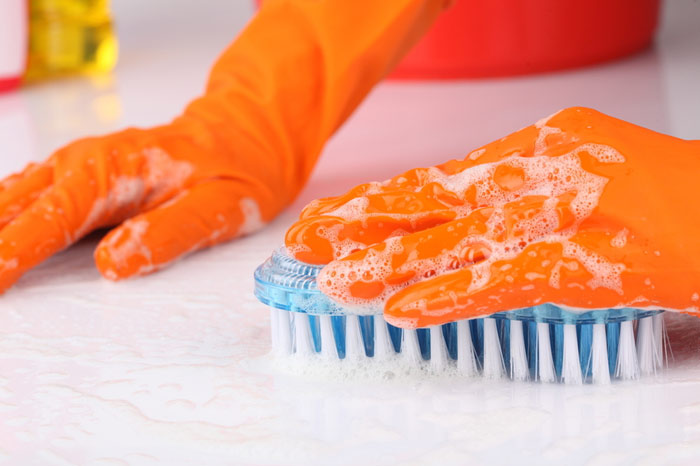How Chores Teach Kids Self-Discipline
Interestingly, about 82% of today’s parents were made to do house chores in their childhood, but less than 30% involved their children in housework, as emerges from a recent survey. While pondering what would be best for children, parents tend to disregard this area. Meanwhile, experts say that doing chores makes good assistance in children’s development, preparing them for adult life. So, it is worth our while to move against the trend and induce the little ones to make themselves useful in the place that is their own home.
While your children are responsible for some chores, they will be acquiring skills and habits that can serve them throughout their lives. See what we can do to help the youngsters along the way.
What makes chores so significant?
It is not the question of making your housework easier or ordering your kids about; the reasons for them getting busy are multiple. Psychologists stated quite a few benefits behind the younger generation helping with the comfort of home.
Chores and happiness are linked
There is a renowned 75-year Harvard study that delved into common socio-biological processes during childhood – how they influence children’s future health and contentment as they enter a responsible life. The conclusion averred that chore-laden kids are likely to achieve more in life.
Of the factors that spelled good chances for children to grow up satisfied with life and robust, doing regular chores played a significant part.
Kids feel more competent
One of the main aspects of chores that provides for future well-being is as follows: when children complete their chores, they gain a feeling of competence. As they have made sure their beds are made, the things are put in place. The floor is clean, they get a sense of being competent! They come across as able, dependable, and doing things in a team with their parents.
A lesson in responsibility
Understandably, a kid has not such a lot of duties. You should know how much your kid(s) can cope with day in, day out. On the one hand, the idea of sparing children’s labor and leave their time untroubled is beautiful, but on the other hand, they should really be taught to bear some responsibility – they won’t get away from that, so the sooner they learn it, the better.
What’s more, it means investing in their future! A research established an interrelation between kids getting busy cleaning their room starting at three and being more successful in business and social life later on. Besides, these people are less dependent on alcohol and substances.
You can set standards of order and cleanliness
If your child gets to be a habitual house-cleaning assistant, he or she will never take order for granted. They won’t think cleanliness is something that appears on its own account – it’s people who make the home clean and comfortable! They will be less inclined to leave a mess behind and learn to respect those who maintain order.
This is linked with children’s health
Chores are often cleanliness-related, meaning that setting proper standards excludes health hazards. While your kids see that the surfaces in their rooms are sanitary, they grow to be aware of bacteria and germs surrounding us. The knowledge will make them more considerate about possible infections and health in general.
Make them success-minded
Research into the matter revealed that the habit of doing housework from around the age of 5 leads to better success in studies, socializing, and, better yet, contentment with life generally. Since five or so, people have learned to tackle tasks, solve small problems, and rely on themselves and discuss and explain things to others.
Replace the word chore for contribution
Probably the best thing of it all is that day-to-day chores evolve into gaining satisfaction with life as a whole. This can be attributed to the feeling that, by doing chores, they contribute to the well-being of the family. Such an attitude is very positive and brings a sense of purpose even if they don’t realize it at a young age.
Also beneficial is the perception of a family as a closed community in which every member contributes to the necessary work. If you make a point of accentuating the children’s contributions, they will grow with the understanding of their importance and your gratitude.
Suppose chores are customarily referred to as (honorable and useful) duties, not as vexing toil. In that case, you are establishing a decent balance between working and family life – a process that will stand them in good stead in the long run.
Concerning pocket money
As the children grow older, they will need some ready cash – and the first understanding of money. Their allowances can come under the category of payment for the chores done. See to it that these two do not get associated, and don’t have allowances in dependence of how you like their work. All this can lead to bargaining and manipulating the chores in an attempt to draw an enlarged allowance, do you want it?
Now when they have grown up, they won’t be paid for putting their place in order! And they won’t be able to bargain with themselves. So they should learn to take orderliness as normal and not expect gratitude or monetary reward for what they have done.
Chores as discipline-building tasks
While the kids mind their tasks, they are becoming more efficient people. Doing chores teaches responsibility, teamwork, care, and more helpful practices. Later on, they will see that these qualities are greatly appreciated and make them regarded as more mature individuals. Therefore it will be beneficial to make a chore schedule involving all the family members starting tomorrow and discuss the idea with everybody concerned.



